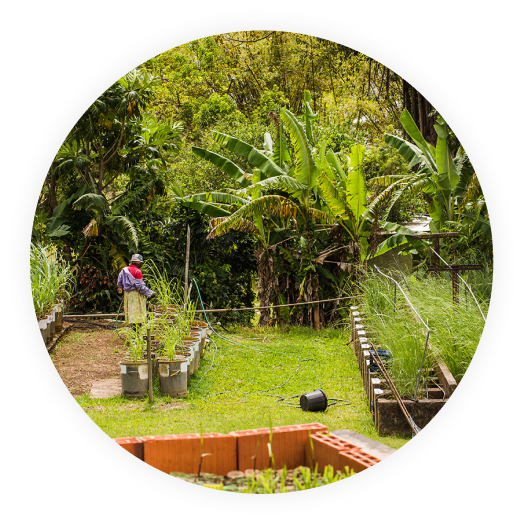The process of developing hybrid seeds has been the cornerstone of agriculture in the modern age. Hybrid seeds have revolutionized agriculture by producing higher yields, better quality plants and seeds that are resilient to pests and disease. This has been no different for the sugar cane industry. The West Indies Central Sugar Cane Breeding Station - WICSCBS, has been in the forefront of hybrid seed research for the sugar cane industry in the Caribbean region for over a century.
At WICSCBS, the primary focus is to develop high-performing, disease-resistant and climate-smart sugar cane varieties that are tailored to meet the unique needs of sugar cane growers and mills in the Caribbean. This has been achieved through the dedicated efforts of our team of scientists and technicians who employ cutting-edge techniques and technology in plant breeding and genetics. In this blog post, I will be discussing more about hybrid seed research at WICSCBS and what makes it unique.
Hybrid Seed Research at WICSCBS
WICSCBS has a long history of developing hybrid seeds for the sugar cane industry in the Caribbean region. The organization was officially established in 1914 as the West Indies Central Sugar Station and since then, it has been at the forefront of hybrid seed research for the sugar cane industry. At WICSCBS, scientists employ plant breeding techniques such as hybridization to develop new varieties that aim to improve yield, resistance to pests and diseases, and climate resilience.
The process of hybridization involves crossbreeding two different varieties of sugar cane with the aim of creating a new variety that carries the desirable traits of both parent varieties. The propagated hybrid seedlings are then tested over several years in a controlled environment to assess their performance in terms of yield and disease resistance. The promising seedlings are then planted on a larger scale in the field for further trials before being released to sugar cane growers and mills.
Why is WICSCBS Unique?
WICSCBS has a unique advantage over other research institutions in the region when it comes to hybrid seed research. One of the strengths of the organization is the large collection of diverse germplasm available at the station. Germplasm refers to the genetic material of living plants that can be used for breeding purposes. WICSCBS has one of the largest collections of sugar cane germplasm in the world which provides a wide range of genetic diversity that can be used to develop new hybrid varieties.
Another advantage of WICSCBS is the use of modern biotechnology tools and molecular marker techniques in hybrid seed research. These tools allow scientists to identify the genes responsible for key traits such as disease resistance and yield potential. This has enabled WICSCBS to develop sugar cane varieties that are specific to the Caribbean region and are better adapted to local environmental conditions.
Benefits of Hybrid Sugar Cane Varieties
Hybrid sugar cane varieties offer several benefits to sugar cane growers and mills. One of the main advantages is increased yield potential. Hybrid sugar cane varieties have been shown to produce up to 20% more sugar than traditional varieties. This means that sugar cane growers can increase their profitability by producing more sugar from the same amount of land.
Another benefit of hybrid sugar cane varieties is increased disease resistance. Sugar cane is susceptible to a wide range of pests and diseases that can significantly reduce yields if not managed properly. Hybrid sugar cane varieties are developed to be more resilient to pests and diseases which means that growers can reduce their use of pesticides and fungicides, thereby decreasing production costs and potential environmental impacts.
The Future of Hybrid Sugar Cane Research at WICSCBS
The future outlook for hybrid sugar cane research at WICSCBS is promising. The organization is constantly exploring and adopting new plant breeding and biotechnology techniques to develop more resilient and higher-yielding sugar cane varieties. The focus is also shifting towards developing varieties that are more tolerant to climate change and can withstand extreme weather events such as drought and flooding.
Conclusion:
In conclusion, hybrid seed research at WICSCBS has played a significant role in the development of the sugar cane industry in the Caribbean region. The organization's use of modern biotechnology tools, large germplasm collection, and talented scientists has resulted in the development of some of the most resilient and high-yielding sugar cane varieties in the world. The future of hybrid sugar cane research at WICSCBS is promising as the organization continues to leverage new plant breeding and biotechnology techniques to develop even better-performing sugar cane varieties for the benefit of sugar cane growers and mills in the region.

